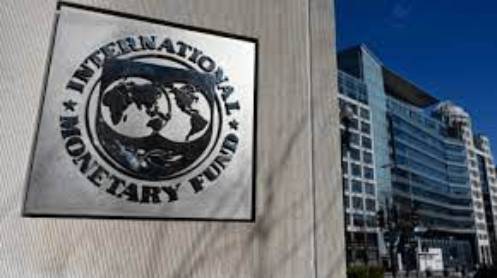ISLAMABAD: The International Monetary Fund (IMF) has advised Pakistan to revive its five-year development planning, get climate-sensitive public investment management plans working and publish criteria for project appraisals for transparency to attract global climate financing.
The IMF’s guidance comes immediately after the two sides reached a staff-level agreement on the first review of a $3 billion bailout, followed by a public announcement by caretaker Finance Minister Dr Shamshad Akhtar to postpone a conventional $1.5bn Eurobond issue this year and the potential need for a longer-term IMF loan deal soon after the February elections.
Meanwhile, the authorities plan to follow the tight fiscal and monetary policies as committed with the IMF under the ongoing loan deal and build foreign exchange reserves for better credit rating and subsequent launch of a green bond called Environmental, Social and Governance (ESG) bond.
Because of the repeated natural disasters, international donors also appear fatigued to spare scarce resources of their taxpayers unless climate-resilient and adaptation measures are in place.
The IMF has found faults with Pakistan’s decision to skip five-year plans in 2018 after the 11th such plan and advised the government to revive medium- and long-term planning in which climate-sensitive investments become part of public investments.
“To enhance urban resilience, a nationwide strategy is needed, as well as adaptation plans at the provincial and city levels,” the IMF said in its technical report released on the weekend.
The report called upon the Ministry of Finance to monitor fiscal risks of public investments at the federal and provincial levels and also at the local government stage and state-owned entities with large development footprints, such as the National Highway Authority (NHA) and the Water and Power Development Authority (Wapda).
It asked Pakistan to develop a five-year strategy by December 2024 to identify major projects across all sectors and funding sources to guide sectoral investment plans and strengthen the appraisal process focusing on large projects, increasing independent scrutiny and developing guidance on key appraisal inputs.
It also asked the authorities to improve information, scrutiny and coordination of major projects regardless of funding sources and the fiscal risks they might create, and present in budget documentary summary information on key aspects of the PSDP and make such criteria public for transparency.
The government has been asked to conduct a one-time review of all technically approved projects and identify the high-priority projects, given the large portfolio of about Rs11 trillion that would take over 14 years to complete with minimal intended outcomes.
The IMF noted that specific guidance for the incorporation and costing of climate change considerations in sectoral plans was not yet provided, but there were sources of general guidance.
“No formal guidance is provided to ministries or provinces on how to align their sectoral plans with the National Climate Change Policy (NCCP) and the Nationally Determined Contribution (NDC),” it said.
It added that the Ministry of Climate Change and the Planning Commission also remained weakly resourced for overseeing and guiding a whole-of-government response to the climate change challenge, which undermined their capacity to fulfil this critical role.
“Finance Division does not yet track climate-related investments or spending” but was taking important steps to strengthen its capacity to track and prioritise climate-related public investment.
The IMF stressed the need to identify and document infrastructure assets in key sectors (like energy, transport and communications, and health) exposed to climate-related natural disaster risks, such as flooding, cyclones and heat waves.
It also wants sectoral contributions to climate change mitigation and adaptation targets clearly identified, along with costed investment plans that help achieve these goals as part of the sectoral and national planning process. This should be taking effect in 2024, the lender said.
But before the current year ends, the IMF wants the climate change ministry and the Planning Commission to finalise and publish a handbook on incorporating climate resilience and adaptability in sectoral planning and project preparation processes and the Climate Change Resilient Urban Human Settlement Strategy and to include climate-resilience and mitigation measures in future building codes and urban planning guidelines.
The IMF pointed out that there were many factors behind the non-compliance with fiscal rules in matters of public sector investments, and public financial management reforms should instil stronger fiscal discipline.
It said Pakistan has a well-established tradition of five-year national planning since 1955, which was abandoned in 2018, and current planning documents were not costed and do not include measurable outcomes.
The current national planning document is Vision 2025. Adopted in 2011, it is largely an aspirational document covering seven development pillars with their respective goals. It does not identify the main investment projects, their costs, or their contribution to achieving these goals.
“The lack of medium-term planning document means that in practice, there is a missing link between the annual budget, investment plans and the objectives of Vision 2025,” the IMF said.







